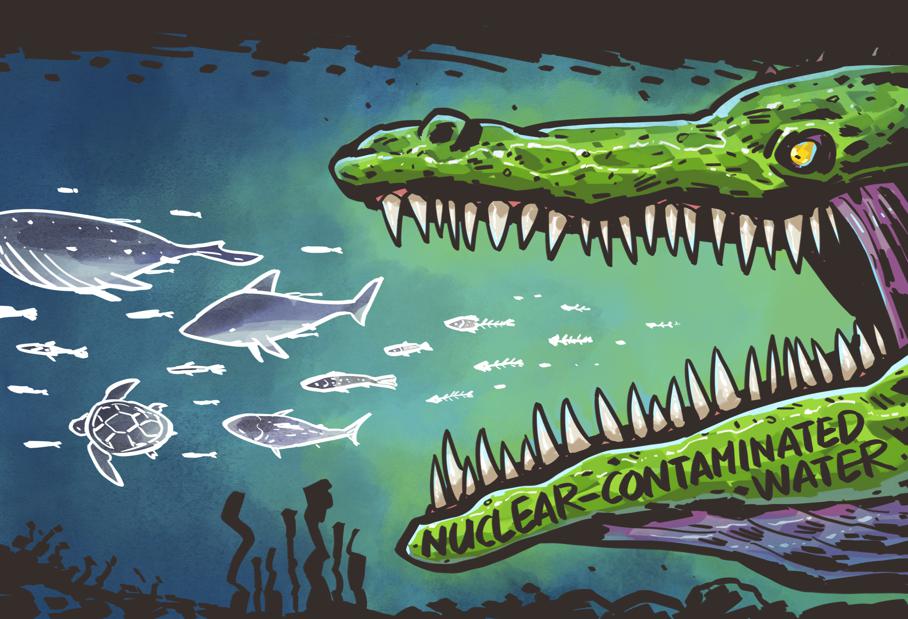Japan has to pay price for selfish discharge move: Editorial flash


One hour after Japan officially started discharging its Fukushima nuclear-contaminated water into the ocean, the General Administration of Customs of China announced a ban on imports of aquatic products - including edible aquatic animals - originating from the nation.
Considering that both the Hong Kong and Macao special administrative regions have already suspended imports of aquatic food or fresh food from Japan, the island nation now faces the loss of its top 2 aquatic food export destinations, namely the Chinese mainland and Hong Kong, with a combined value of over 160 billion Japanese yen ($1.1 billion) in 2022.
Nuclear-contaminated water will spread to every corner of the world, which means other countries and regions face no less threat than China does. Hence it's highly possible for more to follow the steps and issue bans on Japanese aquatic food, partial or full.
That's the price Japan has to pay for its irresponsible move, a price much higher than its politicians anticipated when they made the reckless decision. The government that puts the whole of humanity's health at risk should be taught a lesson by the whole world in business.


































